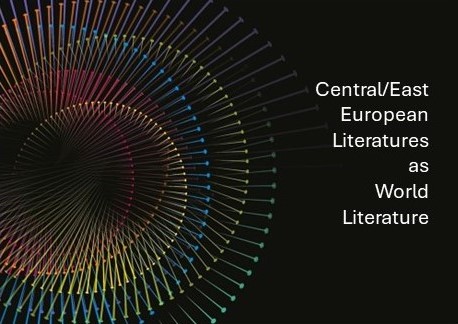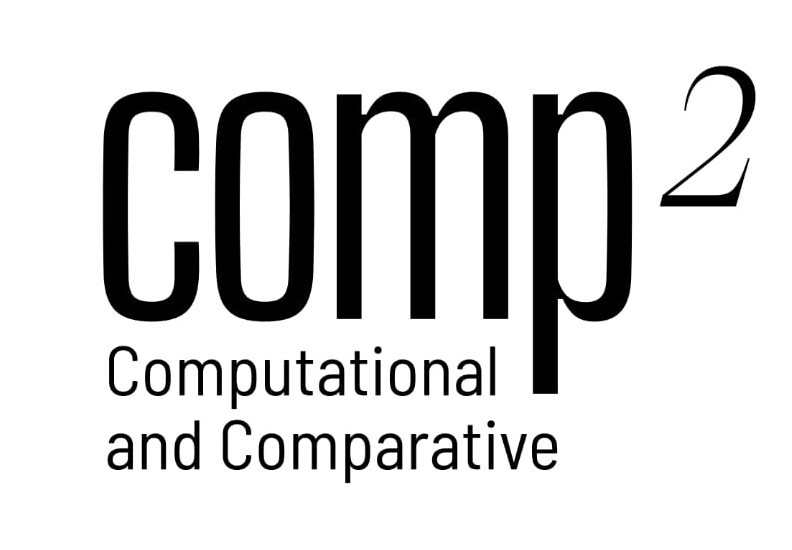
Digital Methods for a Comparative Study of Central European Literary History
Location: Institute of Polish Language Polish Academy of Sciences, Krakow, Mickiewicza 31
02. 10. 2025. Thursday
Conference Day
Zoom: https://us02web.zoom.us/j/83032400147?pwd=BcczHFovkfuMasXtzK2c1Pliim1I2t.1
9:30-11:00 – Section 1. Chair: Jessie Labov
Marko Juvan (Research Centre of the Slovenian Academy of Sciences)
Snejana Ung (Lucian Blaga University of Sibiu): Inter-peripheral circulation of the novel between Romania and Yugoslavia
Kata Dobás (Institute for Literary Studies, Budapest) and Botond Szemes: Literary memory of CEE in the Wikipedia. Automatization of data cleaning.
11:30-13:00 – Section 2. Chair: Botond Szemes
Péter Róbert (University of Szeged): Multilingual Analysis and Visualization of Metadata and Texts in Central and Eastern European Literary Studies
Artjoms Sela and Petr Plecháč (Czech Academy of Sciences): PoeTree and Complit
Anna Mędrzecka-Stefańska: Polish Poetry Corpus and Complit
13:00-14:30 – Lunch
14:30-16:00 – Section 3. Chair: Artjoms Sela
Jacek Bakowski (Institute of Polish Language): Semantic change detection between languages
Benjamin Nagy (Institute of Polish Language): „SHAP Workflow for Interpretation”
Joanna Byszuk (Institute of Polish Language): Comparative possibilities in distant viewing
03. 10. 2025. Friday
Workshop Day
10:00-10:45 – Metadata analysis 1. Guest presentation (online): Georgii Korotkov, Valeriia Korotkova (Stanford University)
11:00-12:30: Topic modelling of novels. Comparative approach of Polish and Hungarain corpora (Patryk Hubar, Botond Szemes)
12:30-13:30 – Lunch
13:30-14:30 – Metadata analysis 2. (Jessie Labov. Róbert Péter); Guest presentation (online): Philip Gleissner (Ohio State University)
15:00-16:00 – Closing & Future
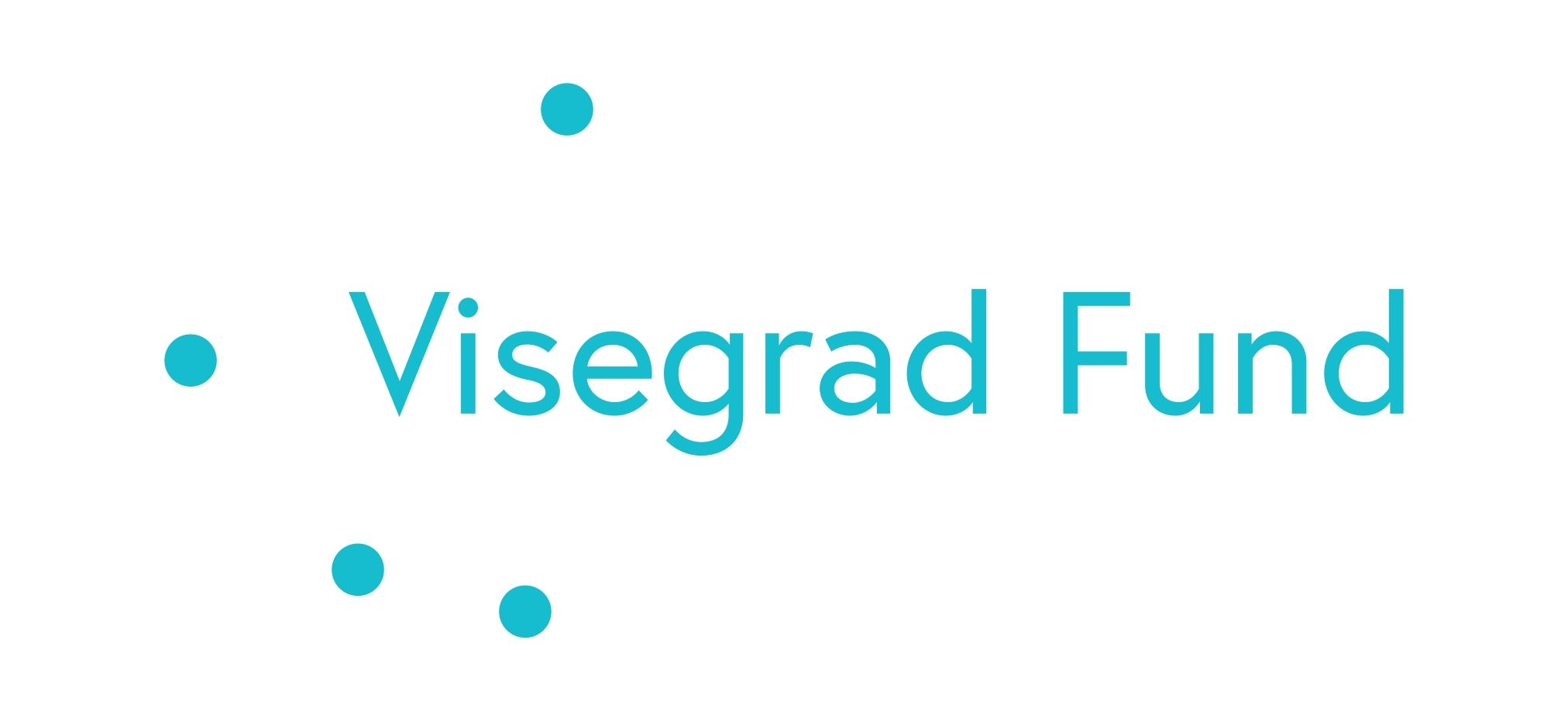
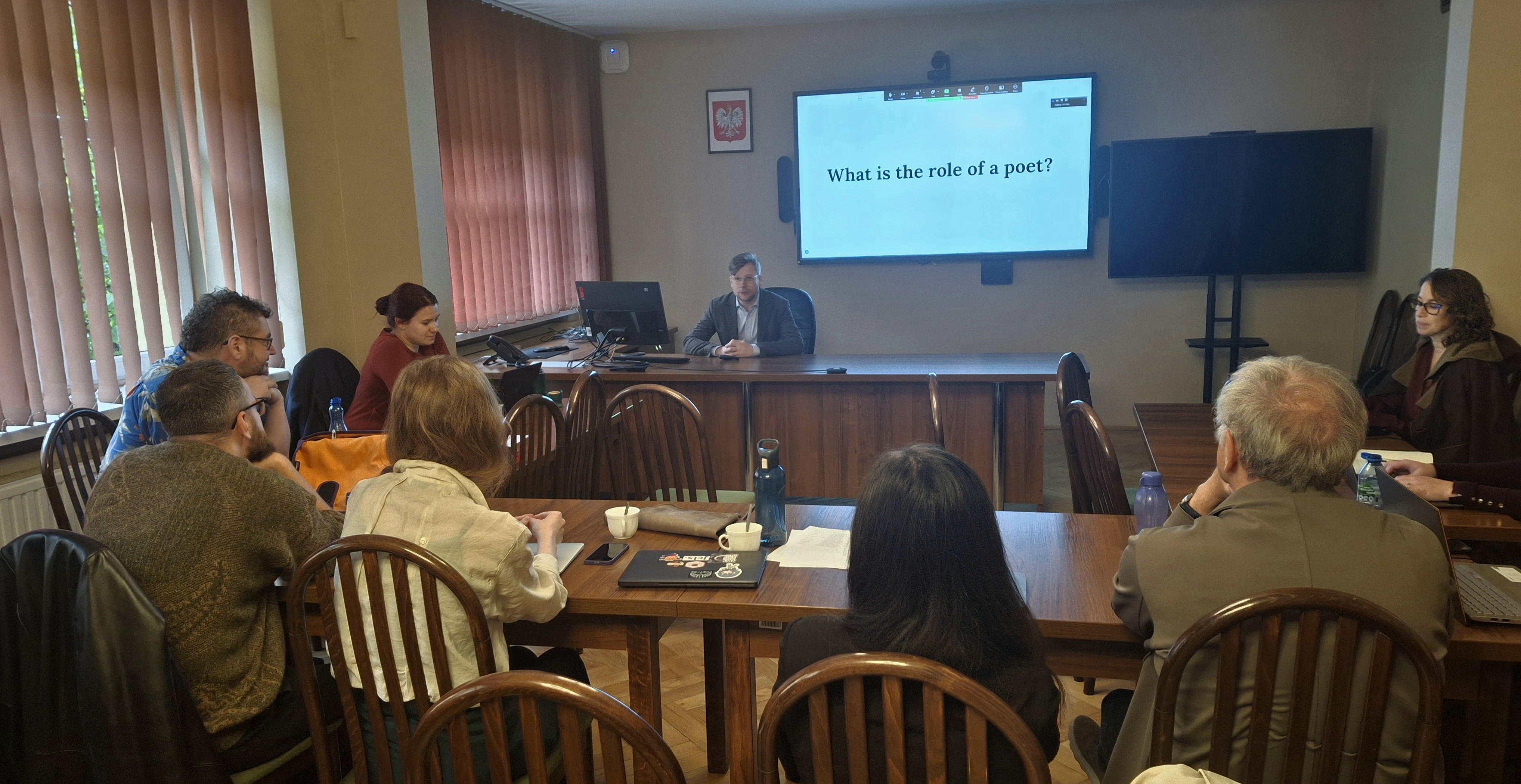
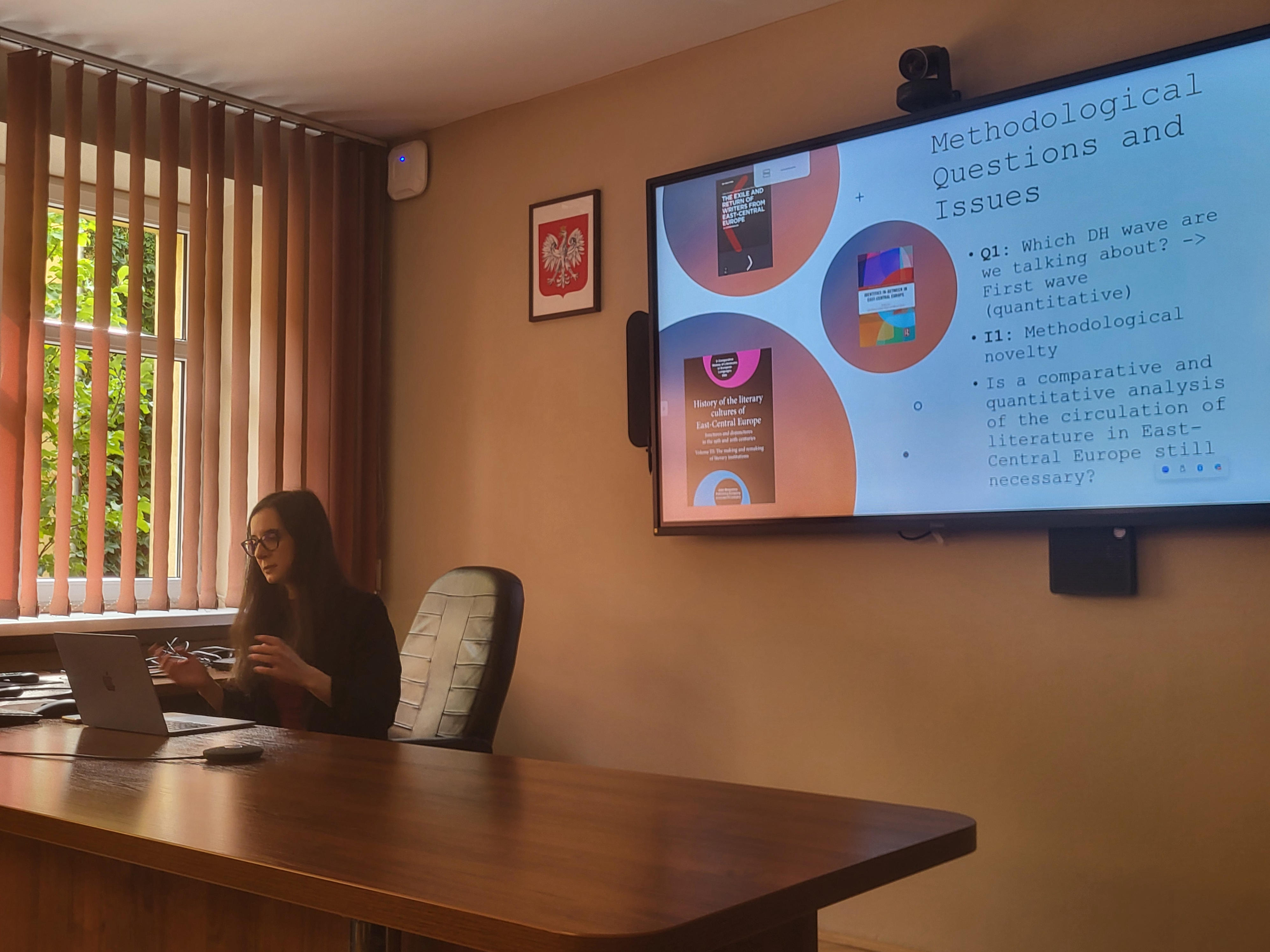
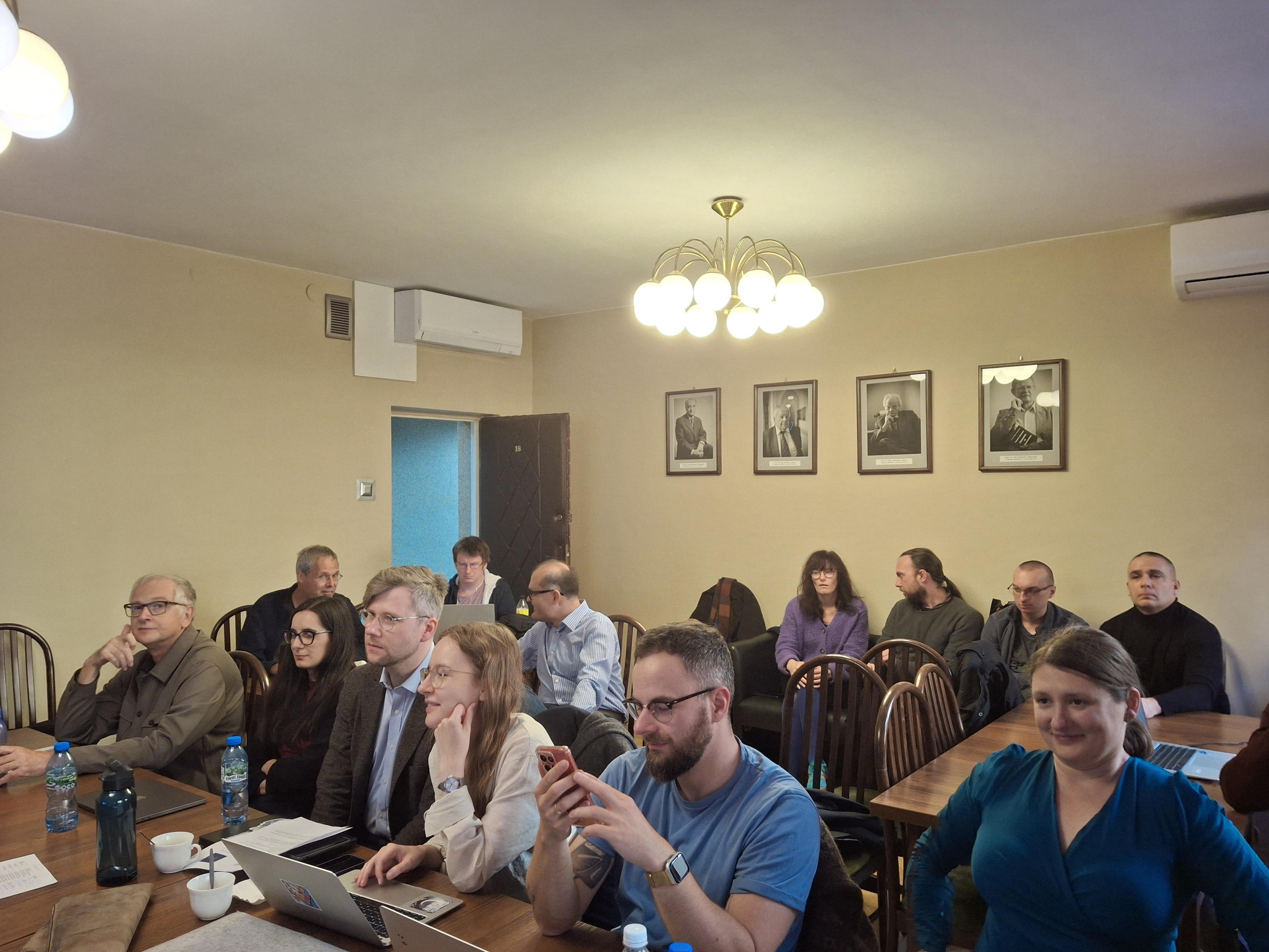
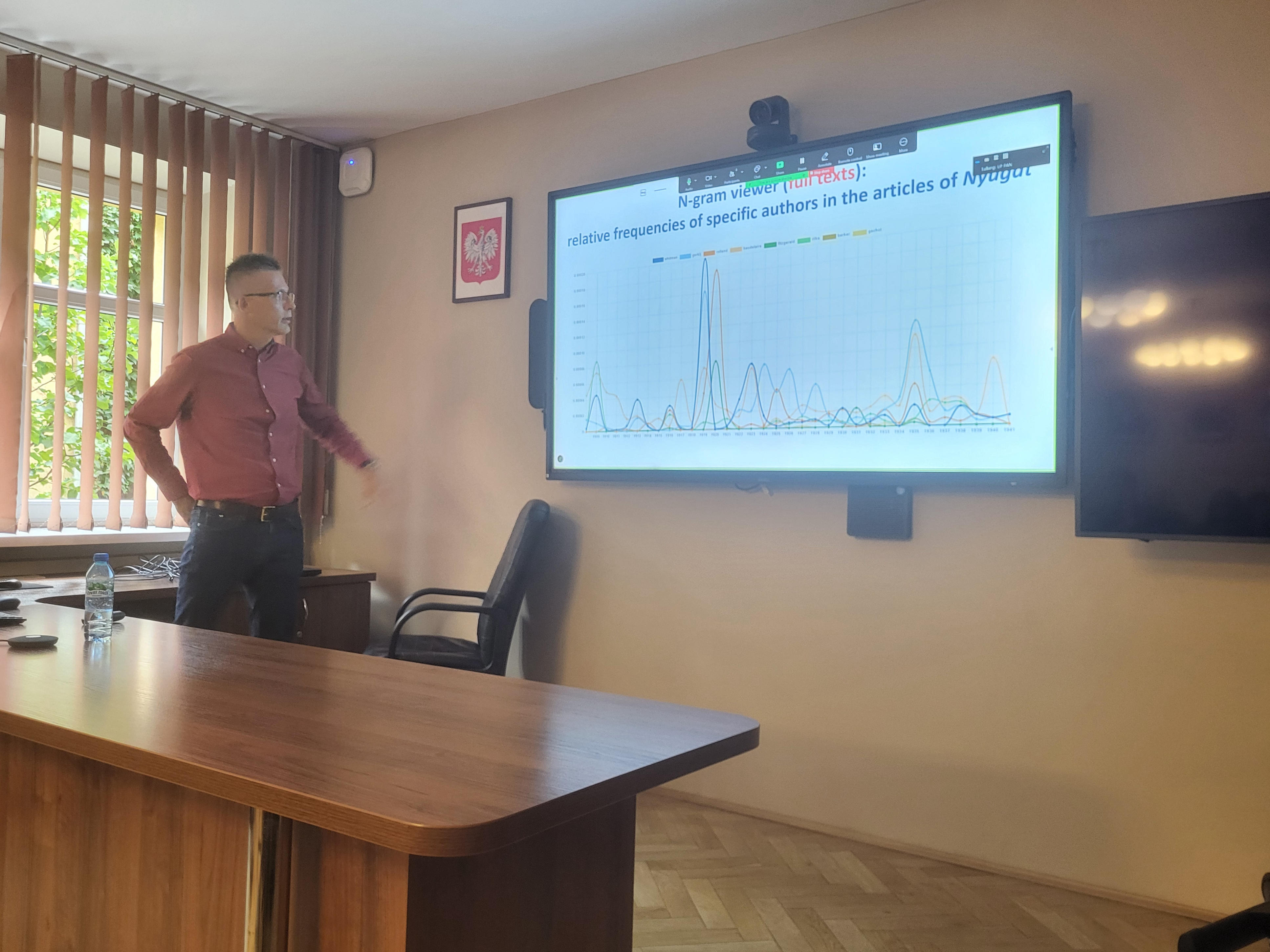
The first day of the second workshop took the form of a mini-conference, during which all participants presented the results of their recent research. The aim of the day was to showcase the diversity of studies conducted by members of the group within the broad framework of Computational and Comparative Studies.
We also hosted three guest speakers: Marko Juvan (Slovenian Academy of Sciences), Snejana Ung (Lucian Blaga University of Sibiu), and Róbert Péter (University of Szeged). The opening lectures by Juvan and Ung provided a theoretical foundation for the workshop’s theme, addressing the notion of “small nations” and regional approaches in Central and Eastern Europe. They discussed how these concepts can be defined and compared, and what challenges computational projects face in this context.
Next, Kata Dobás and Botond Szemes presented their ongoing work on the digital literary memory of the region, based on biographical metadata. They manaeged to extend the scope of the research since March and showed promising results of the automatization of data cleaning. Róbert Péter then introduced AVOMBAT, a new platform for the Analysis and Visualization of Metadata and Texts.
The following “poetry presentations” explored the intersection of geography and literature: Petr Plecháč demonstrated connections between geography and poetic traditions (mainly through prosody); Artjoms Sela examined the geographical imagination of European poetry; and Anna Mędrzecka-Stefańska presented the development of the Polish Poetry Corpus.
In the final session, Jacek Bąkowski introduced a metric for measuring semantic similarity between different languages, which may serve as a foundation for future research – mainly in connection with the topical research of novels (see below). Ben Nagy gave a detailed methodological introduction to SHAP values as a way of identifying key features in classification procedures, and Joanna Byszuk introduced the emerging field of Distant Viewing in the context of Central and Eastern Europe.
The first day highlighted the diversity yet interconnectedness of the participants’ research and inspired lively discussions. Some projects are already ready for publication, while others represent promising ideas for further development. The team agreed to continue both individual and collaborative research, which became the focus of the second day.
On the second day, the workshop centered on one of the key ideas from the first meeting in Budapest: comparing topical similarities between national literary traditions. Patryk Hubar and Botond Szemes created comparable corpora of Polish and Hungarian novels and developed a pipeline for generating relevant topics. Two methods were tested—LDA topic modeling and BERT-Topic. After promising results from smaller samples, the team decided to continue exploring the question: What are the differences and similarities in the topics of 19th-century Hungarian and Polish novels?
Finally, Jessie Labov organized a metadata workshop, featuring guest speakers (via Zoom) who introduced new methods for analyzing biographical and bibliographical metadata. This line of research will also be continued by group members, applying the presented methods to the context of Central and Eastern Europe.
Overall, the workshop fully achieved its aims: it brought together researchers from the region, fostered collaboration, and opened new perspectives for comparative literary studies using digital methods. A cohesive research group has now formed, with several promising joint projects. The team decided both to pursue further funding opportunities and to begin collecting papers on the various topics for a joint publication in a prestigious academic journal.
